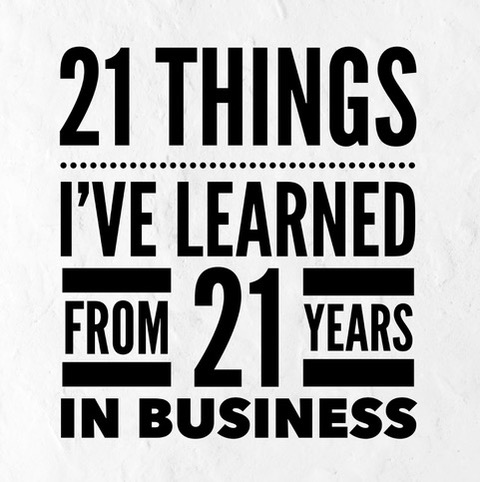22nd February 2023
21 years in business lesson 2: I run a one-person business, I’m not ‘just’ a freelancer

This might seem like semantics but I think it’s an important distinction. It took me a few years to realise that those of us who are freelancers are absolutely running a business and need to act like that – and be treated like that. I’ve met a frightening number of people in the business community that look down on freelancers, viewing them purely as a disposable resource rather than as another business owner – and I’ve also met a fair few freelancers who don’t act and work as a business should, inadvertently lowering the value of their work in the process.
There is nothing wrong with being a freelance worker, living the freelance lifestyle, keeping admin and systemisation to a minimum. It’s perfectly possible to make a terrific living and have a great lifestyle and life/work balance as a freelancer.
It was an important lesson for me when I stopped thinking of myself as freelance and looking for freelance contracts, with all the insecurity (and insecurities) that went with that. Once I’d repositioned myself in my own mind as a business, so much else followed as I became more professional. Taking on clients, marketing my services (rather than just looking for work), having systems such as bookkeeping and invoicing in place, thinking of my business and myself as slightly separate entities (see yesterday’s lesson for more on that) then I became more professional in my approach – and potential clients took me more seriously and were willing to pay significantly more for my services as they were buying from an entity that looked, felt and acted as their businesses did.
Being a one-person business doesn’t mean that you’ve got to have an office, headed paper and a VAT number – although I do think you should have a company number (i.e. go Limited Company) and, obvs, a VAT number once that becomes necessary, which is an exciting threshold to reach and isn’t nearly as big and scary to administer as you think it’s going to be. Being a properly instituted one-person business also makes it easier to grow if you decide to have more than just one-person in your business at some point.
I’ve had a few people use the term ‘solopreneur’, which I rather like, although I’d argue that not all one-person businesses are entrepreneurs (but that really IS semantics) but one thing I’ve learned about being a sole employer/employee is that very little business support is aimed at the solopreneur or freelancer. A lot of funding is only available to those with a number of employees (this became very evident during the pandemic). Very few business support organisations such as Chambers of Commerce or Local Economic Partnerships have programmes or events geared towards the specific needs and challenges of running a one-person business. I’d love to see this change as more and more people go this route.
Finally, regardless of what you call yourself – a freelance, founder, director, solopreneur etc – a one person office Christmas Party is never festive. I’m amazed no one has started running parties to bring together the amazing people (and businesses) that fall into this category. There’s a new business idea, perhaps?!

